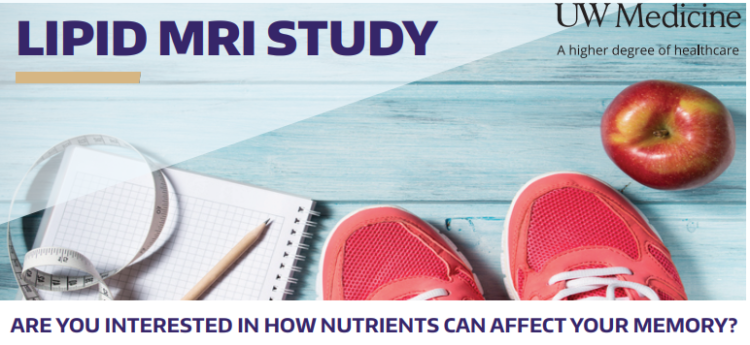
Official title: APOE Genotype Effects on Triglycerides and Blood Flow in the Human Brain
Purpose
The Lipid MRI Study is enrolling people for a NIH-funded study to test how two simple nutrients, sugar and fat, can affect your memory, brain (via MRI Scan) and blood biomarkers. The Lipid MRI study involves non-invasive MRI imaging to see how a risk gene for Alzheimer’s disease, APOE4, affects brain blood flow after a high fat drink. With this study, we hope to understand what parts of the brain are most affected by a high fat meal.
Eligibility
• You are age 55 or older
• You do not have Alzheimer's disease or dementia
• You are not currently taking medication for diabetes
What to Expect
The study involves one initial screening visit and one study visit. For both visits, we ask participants to fast in the morning (water and medications are still okay to take). Study participants will be compensated for their time.
The screening visit takes place at the University of Washington South Lake Union campus and involves obtaining in-person consent, vitals, blood draws through an IV, a brief memory test, an oral glucose tolerance test, and a DEXA scan to measure body composition. The visit will last about 3.5 hours.
The final study visit takes place at the University of Washington main campus. This visit involves blood draws through an IV, drinking dairy cream, two MRI scans, and cognitive testing on an iPad. The visit will last about 5 hours.
PARTICIPANTS WILL RECEIVE
• Information about dementia prevention
• Participants will be compensated for their time.
UW ADRC Study Contact:
Kristen Farris | kmfarris@uw.edu |206-897-6797
UW ADRC Site PI:
Angela Hanson, MD

